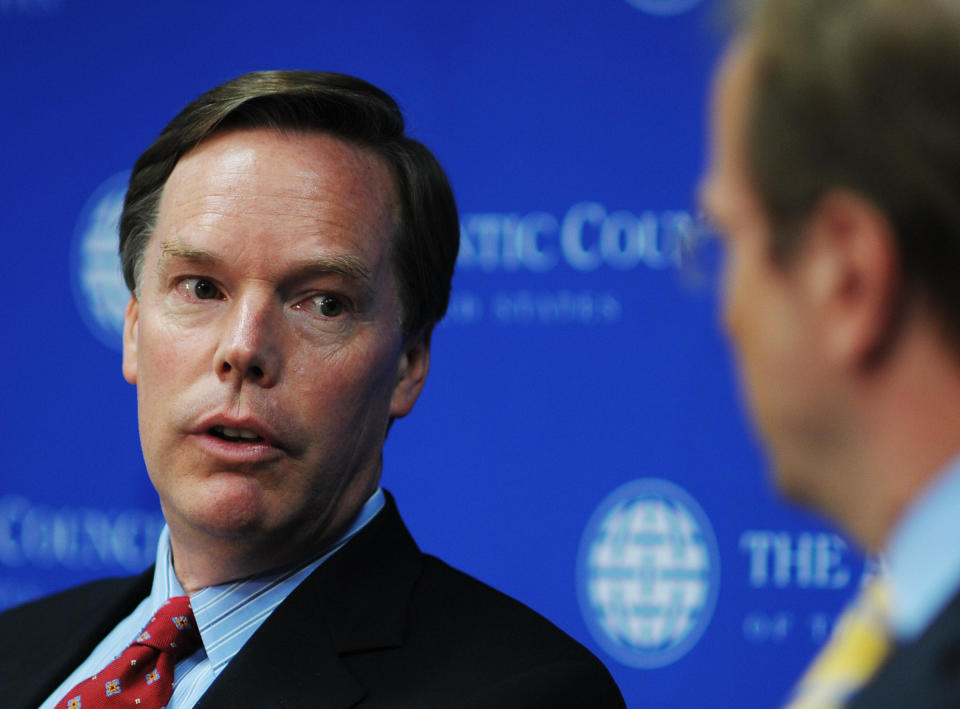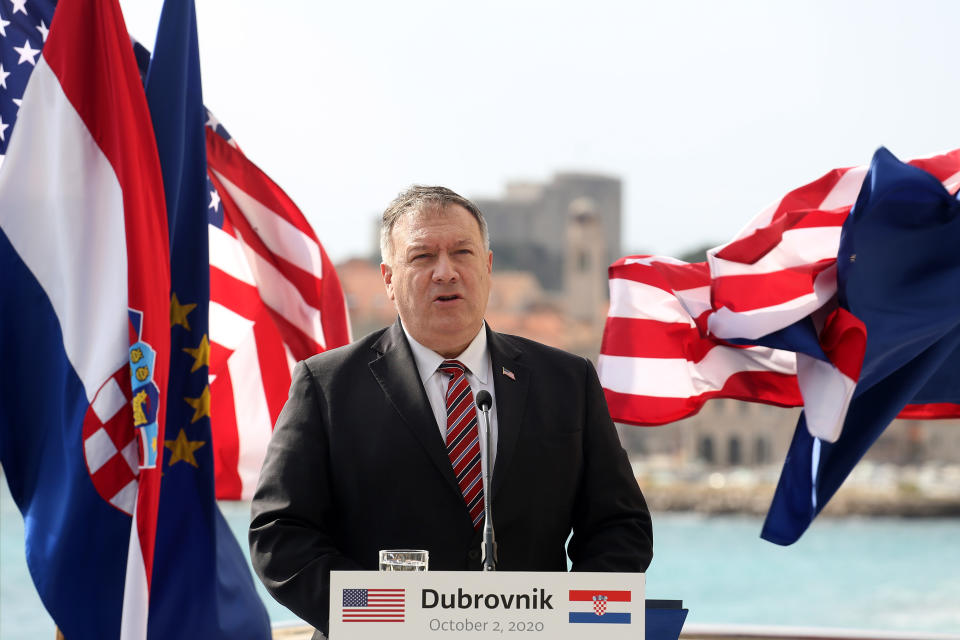News of Trump's illness another blow to U.S. prestige on the global stage, say experts
President Trump’s positive test for COVID-19 may not spark any sudden moves by foreign adversaries, but the news will be another blow to U.S. prestige on the global stage, according to national security experts.
“It’s certainly embarrassing when the president has scoffed about taking precautions and then comes down with the disease,” said Jon Alterman, a senior vice president at the Center for Strategic and International Studies.

Meanwhile, adversaries will use Trump’s positive COVID-19 test in their influence campaigns, according to Ned Price, a former CIA intelligence analyst who also served as National Security Council spokesman and special assistant to President Barack Obama. “The air of invincibility of the presidency has been pierced and we can expect these foreign actors to seek to take advantage,” he wrote in an email to Yahoo News.
U.S. partners and allies will publicly express sympathy for Trump but will see his sickness as yet more evidence of his administration’s “miserable management” of the disease, said John McLaughlin, former acting director of central intelligence.
In addition, even though the U.S. military and intelligence agencies will remain on watch, the president’s illness will serve to further focus the American body politic inward, according to McLaughlin. “It’s not as though we’re flat on our backs, it’s just that we are distracted, and that’s an advantage for others,” he said.
However, American foes are unlikely to launch “kinetic” strikes at the United States simply because the president and the first lady are in quarantine in the White House, according to McLaughlin.
Former Undersecretary of State Nicholas Burns agreed but said that adversaries like China and Russia might feel more emboldened to take actions “in their own neighborhoods” if they perceive that the United States is distracted. He added that China already demonstrated its willingness to do so earlier this year, after the country emerged from its bout with COVID-19.

As the virus swamped the United States and other Western countries, the Chinese “essentially strangled Hong Kong’s democracy” while instigating a border conflict with India and ramping up aggression against the Philippines and Vietnam in the South China Sea, Burns said. “This is the kind of thing that happens if the aggressive authoritarian countries believe that the United States is looking completely inward and is incapable of acting.”
But in what he acknowledged was a “counterintuitive” take on the day’s news, CSIS’s Alterman said that if Trump’s COVID-19 diagnosis forces the president to step back somewhat from active participation in national security decisions, it might actually help the relevant departments and agencies. “The president is the principal driver of unpredictability in U.S. foreign and security policy,” he said.
Not only is the rest of the government capable of conducting its business “without constant presidential direction,” Alterman said, it “sometimes seems to wish it got less presidential direction.” As a result, he said, he does not foresee “adversaries taking advantage of the U.S. napping, because I don’t think the U.S. will be napping.”
In the event an adversary does provoke a crisis, Trump’s quarantine status is unlikely to affect decision making “unless the president becomes profoundly ill,” wrote Price. “Even if the president maintains strict isolation protocols, there are secure means to contact him at a moment’s notice.”

As of midday Friday, there were no public signs that other key members of the national security team had caught the disease. Vice President Mike Pence’s office said Friday that he had tested negative. Secretary of State Mike Pompeo told reporters traveling with him en route to Croatia that on Friday morning he had tested negative for the fourth time since Sept. 16, having last been with the president on Sept. 15.
Pentagon spokesman Jonathan Hoffman said in a statement that Defense Secretary Mark Esper was last with Trump at a White House event Sunday. A photograph from the event shows Esper standing beside Trump, with Army Gen. Mark Milley, the chairman of the Joint Chiefs of Staff, just a few feet away, none of them wearing masks.
But Esper tested negative for COVID-19 on Monday and Wednesday and would be tested again on Friday, while Milley tested negative Friday, according to Hoffman, who added that the president’s positive test had not prompted any change to Defense Department alert levels.
“The U.S. military stands ready to defend our country and interests,” Hoffman said. “Our national command and control structure is in no way affected by this announcement.”
_____
Read more from Yahoo News:

 Yahoo Finance
Yahoo Finance 


